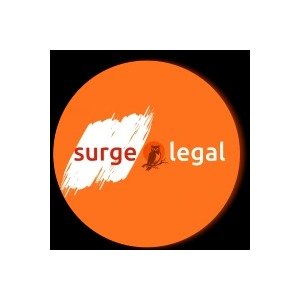Best Foreclosure Lawyers in Baulkham Hills
Share your needs with us, get contacted by law firms.
Free. Takes 2 min.
Free Guide to Hiring a Real Estate Lawyer
List of the best lawyers in Baulkham Hills, Australia
About Foreclosure Law in Baulkham Hills, Australia
Foreclosure, also known as mortgage repossession, is a legal process wherein a mortgage lender reclaims ownership of a property due to the borrower's failure to meet the terms of the mortgage contract. In Baulkham Hills, Australia, these laws are primarily governed by the Real Property Act 1900 and the Conveyancing Act 1919. The foreclosure process generally begins with the issuance of a default notice and can end up in eviction and sale of the property if the borrower can't rectify the situation.
Why You May Need a Lawyer
Understanding the intricacies of foreclosure laws and dealing with lenders can be both complex and stressful. Experienced foreclosure lawyers can help you navigate the legal maze, negotiate with lenders to explore options like loan modifications, defend you if the lender has acted unlawfully, and provide representation during court proceedings. Hence, if you have been served a foreclosure notice or are struggling with loan repayments, you might need the services of a foreclosure lawyer.
Local Laws Overview
Under Australian law, in the event of a mortgage default, lenders are required to provide homeowners with a period of time to rectify the situation - typically 30 days. They also need to provide clear and legible details of the amounts due. The lender can only proceed with foreclosure after the notice period has expired without resolution. The lender has the right to take possession of and sell the property to recover the amount owed, and any surplus from the sale after the mortgage and associated costs are paid is returned to the borrower.
Frequently Asked Questions
Can I take action to stop a foreclosure?
Yes, options may include renegotiating your loan terms with your lender, refinancing, or filing a hardship variation. Legal representation can help in these negotiations and in identifying the best course of action for your situation.
What happens if my property is sold for less than I owe?
In case the sale of the property doesn't cover the debt owed, you will be responsible for the remaining balance, known as a deficiency. The lender, however, must try to get the best possible price for the property.
Can I regain my property after a foreclosure sale?
The possibility of regaining your property post-foreclosure depends on the specific stipulations of your loan contract and state laws. In most cases, this isn't possible after the property has been sold. Hence, getting proper legal advice is essential.
What are my rights during a foreclosure process?
During a foreclosure process, you have the right to be properly notified, have the debt details clearly outlined, and have a fair chance of repaying the amount due to stop the foreclosure.
Can foreclosure be avoided?
Yes, foreclosure can be avoided depending on your circumstances. Some of the options include loan modification, reaching a repayment agreement with your lender, or selling your house yourself before the foreclosure is completed.
Additional Resources
For additional assistance regarding foreclosure, homeowners can refer to organizations like the Legal Aid NSW and the Financial Rights Legal Centre. These bodies provide free or low-cost legal advice. You may also visit the Australian Government's Moneysmart website for general advice on dealing with mortgage stress and avoiding foreclosure.
Next Steps
If you are facing potential foreclosure, seeking legal advice at the earliest is crucial. Find a reliable lawyer who specializes in foreclosure law. Prepare all the necessary documents including loan details, income sources, and an account of dealings with your lender. This can help your lawyer give you the most accurate advice and representation. Always be proactive and open with your lender about your financial situation to explore possible solutions.
Lawzana helps you find the best lawyers and law firms in Baulkham Hills through a curated and pre-screened list of qualified legal professionals. Our platform offers rankings and detailed profiles of attorneys and law firms, allowing you to compare based on practice areas, including Foreclosure, experience, and client feedback.
Each profile includes a description of the firm's areas of practice, client reviews, team members and partners, year of establishment, spoken languages, office locations, contact information, social media presence, and any published articles or resources. Most firms on our platform speak English and are experienced in both local and international legal matters.
Get a quote from top-rated law firms in Baulkham Hills, Australia — quickly, securely, and without unnecessary hassle.
Disclaimer:
The information provided on this page is for general informational purposes only and does not constitute legal advice. While we strive to ensure the accuracy and relevance of the content, legal information may change over time, and interpretations of the law can vary. You should always consult with a qualified legal professional for advice specific to your situation.
We disclaim all liability for actions taken or not taken based on the content of this page. If you believe any information is incorrect or outdated, please contact us, and we will review and update it where appropriate.








